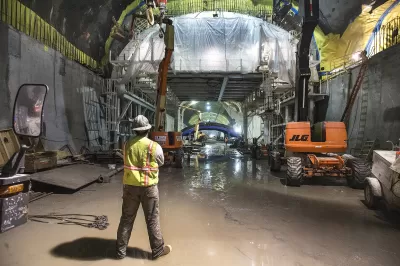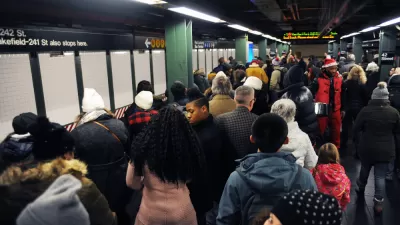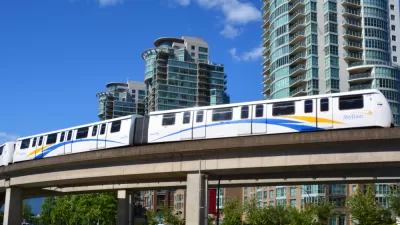Could the cancellation the New York Metropolitan Transportation Authority's membership in the American Public Transportation Association be the wakeup call the transit industry needs?

"The country’s largest transit agency is withdrawing from the country’s main transit trade association," according to an article on the TransitCenter website. The agency in question is the New York Metropolitan Transportation Authority (MTA), which accounted for 35 percent of all transit ridership in the United States. "The idea of a transit industry association that doesn’t include the MTA is akin to an OPEC without Saudi Arabia," adds the post.
"The essence of the MTA’s complaint is that APTA is not worth the investment. In the letter, officials noted the agency pays $400,000 per year because of its size but in return has little influence within the organization," according to the post.
The post goes into more detail, revealingly, about the discontent also surrounding the way transit is funded at the federal level, with some transit organizations happy to applaud the silver linings of policies like the FAST Act instead of fighting for fundamental reforms in transportation funding. "These issues were not likely root causes of the MTA’s decision to leave APTA. But the agency’s withdrawal nonetheless presents an opportunity to re-examine the way the conversation around public transportation has developed both in Washington and peer-to-peer within the industry."
FULL STORY: MTA Pulls The Plug On APTA

Study: Maui’s Plan to Convert Vacation Rentals to Long-Term Housing Could Cause Nearly $1 Billion Economic Loss
The plan would reduce visitor accommodation by 25,% resulting in 1,900 jobs lost.

Alabama: Trump Terminates Settlements for Black Communities Harmed By Raw Sewage
Trump deemed the landmark civil rights agreement “illegal DEI and environmental justice policy.”

Why Should We Subsidize Public Transportation?
Many public transit agencies face financial stress due to rising costs, declining fare revenue, and declining subsidies. Transit advocates must provide a strong business case for increasing public transit funding.

Paris Bike Boom Leads to Steep Drop in Air Pollution
The French city’s air quality has improved dramatically in the past 20 years, coinciding with a growth in cycling.

Why Housing Costs More to Build in California Than in Texas
Hard costs like labor and materials combined with ‘soft’ costs such as permitting make building in the San Francisco Bay Area almost three times as costly as in Texas cities.

San Diego County Sees a Rise in Urban Coyotes
San Diego County experiences a rise in urban coyotes, as sightings become prevalent throughout its urban neighbourhoods and surrounding areas.
Urban Design for Planners 1: Software Tools
This six-course series explores essential urban design concepts using open source software and equips planners with the tools they need to participate fully in the urban design process.
Planning for Universal Design
Learn the tools for implementing Universal Design in planning regulations.
Smith Gee Studio
Alamo Area Metropolitan Planning Organization
City of Santa Clarita
Institute for Housing and Urban Development Studies (IHS)
City of Grandview
Harvard GSD Executive Education
Toledo-Lucas County Plan Commissions
Salt Lake City
NYU Wagner Graduate School of Public Service





























